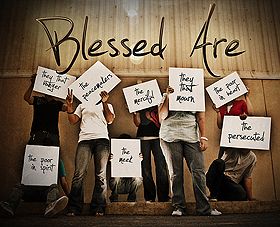Thankful For Friends Quotes Biography
source{google.com.pk}On a trip to New York City, Rogers was at Madison Square Garden when a wild steer broke out of the arena and began to climb into the viewing stands. Rogers quickly roped the steer to the delight of the crowd. The feat got front page attention from the newspapers, giving him valuable publicity and an audience eager to see more. William Hammerstein came to see his vaudeville act, and quickly signed Rogers to appear on the Victoria Roof—which was literally on a rooftop—with his pony. For the next decade, Rogers estimated he worked for fifty weeks a year at the Roof and at the city's myriad vaudeville theaters. Rogers described these early years at the Fifteenth Anniversary of the Columbia Theater in New York City. "I got a job on Hammerstein's Roof at $140 a week for myself, my horse, and the man who looked after it. I remained on the roof for eight weeks, always getting another two week extension when Willie Hammerstein would say to me after the Monday matinee, 'you're good for two weeks more'... Marty Shea, the booking agent for the Columbia, came to me and asked if I wanted to play burlesque. They could use an extra attraction... I told him I would think about it, but 'Burlesque' sounded to me then as something funny." Shea and Sam A. Scribner, the general manager of the Columbia Amusement Company, approached Rogers a few days later; Shea told Scribner Rogers was getting $150 and would take $175. "'What's he carrying?' Scribner asked Shea. 'Himself, a horse, and a man'. answered Shea." Scribner replied "'Give him eight weeks at $250'". In 1908, Rogers married Betty Blake (1879–1944), and the couple had four children: Will Rogers, Jr., Mary Amelia, James Blake, and Fred Stone. Bill became a World War II hero, played his father in two films, and became a member of Congress. Mary became a Broadway actress, and Jim was a newspaperman and rancher; Fred died of diphtheria at age two. The family lived in New York, but they managed to make it home to Oklahoma during the summers. In 1911, Rogers bought a 20-acre (8.1 ha) ranch near Claremore, Oklahoma, which he intended to use as his retirement home, for US$500 per acre In the fall of 1915, Rogers began to appear in Florenz Ziegfeld's Midnight Frolic. The variety revue began at midnight in the top-floor night club of Ziegfeld's New Amsterdam Theatre, and drew many influential—and regular—customers. By this time, Rogers had refined his act to a science. His monologues on the news of the day followed a similar routine every night. He appeared on stage in his cowboy outfit, nonchalantly twirling his lasso, and said, "Well, what shall I talk about? I ain't got anything funny to say. All I know is what I read in the papers." He then made jokes about what he had read in that day's newspapers. The line "All I know is what I read in the papers" is often incorrectly described as Rogers's most famous punch line, when it was in fact his opening line. His run at the New Amsterdam ran on into 1916, and Rogers's obvious popularity led to an engagement on the more famous Ziegfeld Follies. At this stage Rogers' act was strictly physical, a display of daring riding and clever tricks with his lariat. He discovered that audiences identified the cowboy as the archetypical American—doubtless aided by Theodore Roosevelt's image as a cowboy. Rogers' cowboy showed an unfettered man free of institutional restraints, with no bureaucrats to order his life. When he came back to the United States and worked in Wild West shows, he noticed that audiences were just as fascinated by his frontier, Oklahoma twang. By 1916, a featured star in Ziegfeld's Follies on Broadway, he moved into satire by transforming the "Ropin' Fool" to the "Talkin' Fool". At one performance, with President Woodrow Wilson in the audience, he improvised a "roast" of presidential policies that had Wilson, and the entire audience, in stitches and proved his remarkable skill at off-the-cuff, witty commentary on current events. The rest of his career he built around that skill. An editorial in The New York Times said that "Will Rogers in the Follies is carrying on the tradition of Aristophanes, and not unworthily." Rogers branched into silent films too, for Samuel Goldwyn's company Goldwyn Pictures. He made his first silent movie, Laughing Bill Hyde, filmed in Fort Lee, New Jersey, in 1918. Many early films were made near the major New York performing market, so Rogers could make the film, yet still rehearse and perform in the Follies. He eventually appeared in most of the Follies, from 1916 Hollywood discovered Rogers in 1918, as Samuel Goldwyn gave him the title role in Laughing Bill Hyde. A three-year contract with Goldwyn, at triple the Broadway salary, moved Rogers west. He bought a ranch in Santa Monica and set up his own production company. While Rogers enjoyed film acting, his appearances in silent movies suffered from the obvious restrictions of silence—not the strongest medium for him, having gained his fame as a commentator on stage. It helped somewhat that he wrote a good many of the title cards appearing in his films. In 1923, he began a one-year stint for Hal Roach and made 12 pictures. Among the films he made for Roach in 1924 were three directed by Rob Wagner: Two Wagons Both Covered, Going to Congress and Our Congressman. He made two other feature silents and a travelogue series in 1927, and did not return to the screen until his time in the 'talkies' began in 1929.
He made 48 silent movies, but with the arrival of sound in 1929 he became a top star in that medium. His first sound film, They Had to See Paris (1929), finally gave him the chance to exercise his verbal magic. He played a homespun farmer (State Fair) in 1933, an old-fashioned doctor (Dr. Bull) in 1933, a small town banker (David Harum ) in 1934, and a rustic politician (Judge Priest) in 1934. He was also in County Chairman (1935), Steamboat 'Round the Bend (1935), and In Old Kentucky (1935). His favorite director was John Ford. Rogers appeared in 21 feature films alongside such noted performers as Lew Ayres, Billie Burke, Richard Cromwell, Jane Darwell, Andy Devine, Janet Gaynor, Rochelle Hudson, Boris Karloff, Myrna Loy, Joel McCrea, Hattie McDaniel, Ray Milland, Maureen O'Sullivan, ZaSu Pitts, Dick Powell, Bill "Bojangles" Robinson, Mickey Rooney, and Peggy Wood. He was directed three times by John Ford. He appeared in three films with his friend Stepin Fetchit (aka Lincoln T. Perry): David Harum (1934), Judge Priest (1934) and The County Chairman With his voice becoming increasingly familiar to audiences, he was able to basically play himself, without normal makeup, in each film, managing to ad-lib and even work in his familiar commentaries on politics at times. The clean moral tone of his films led to various public schools taking their classes, during the school day, to attend special showings of some of them. His most unusual role may have been in the first talking version of Mark Twain's novel A Connecticut Yankee in King Arthur's Court. His popularity soared to new heights with films including Young As You Feel, Judge Priest, and Life Begins at 40 with Richard Cromwell and Rochelle Hudson. After Rogers gained recognition as a humorist-philosopher in vaudeville, he gained a national audience in acting and literary careers from 1915 to 1935. In these years, Rogers increasingly expressed the views of the "common man" in America. He downplayed academic credentials, noting, "Everybody is ignorant, only on different subjects." Americans of all walks admired his individualism, his appreciation for democratic ideas, and his liberal philosophies on most issues. Moreover, Rogers extolled hard work and long hours of toil in order to succeed, and such expressions upheld theories of many Americans on how best to realize their own dreams of success. He symbolized the self-made man, the common man, who believed in America, in progress, in the American Dream of upward mobility, and whose humor never offended even those who were the targets of it.America in the 1920s was disenchanted and alienated from the outside world. Rogers seemed to many an anchor of stability; his conventional home life and "old fashioned" morality reminded people of an innocent past. His newspaper column, which ran from 1922 to 1935, stressed both "old" morality and the belief that political problems were not as serious as they sounded. In his films, Rogers began by playing a simple cowboy; his characters evolved to explore the meaning of innocence in film. In his last movies, Rogers explores a society fracturing into competing classes from economic pressures. Throughout his career, Will Rogers was a link to a better, more comprehensible past. In 1926, the high-circulation weekly magazine The Saturday Evening Post financed a European tour for Rogers in return for the publication of his articles. Rogers made whirlwind visits to numerous European capitals and met with both international figures and common people. His articles reflected a fear that Europeans would again go to war, and thus he recommended that the United States should assume an isolationist posture. He reasoned that for the moment American needs could best be served by concentrating on domestic questions and avoiding foreign entanglements. He commented: America has a unique record. We never lost a war and we never won a conference in our lives. I believe that we could without any degree of egotism, single-handed lick any nation in the world. But we can't confer with Costa Rica and come home with our shirts on. Rogers was famous for his use of language. He effectively utilized up-to-date slang and invented new words to fit his needs. He also made frequent use of puns and terms which closely linked him to the cowboy tradition, as well as speech patterns using a southern dialect.Brown (1979) argues that Rogers held up a "magic mirror" that reflected iconic American values. Rogers was the archetypical "American Democrat" thanks to his knack of moving freely among all social classes, his stance above political parties, and his passion for fair play. He represented the "American Adam" with his independence and self-made record. Rogers furthermore represented the "American Prometheus" through his commitment to utilitarian methods and his ever-optimistic faith in future progress.
Thankful For Friends Quotes tumblr and Sayings for Girls Funny Taglog For Facebook Images short Pictures

Thankful For Friends Quotes tumblr and Sayings for Girls Funny Taglog For Facebook Images short Pictures

Thankful For Friends Quotes tumblr and Sayings for Girls Funny Taglog For Facebook Images short Pictures

Thankful For Friends Quotes tumblr and Sayings for Girls Funny Taglog For Facebook Images short Pictures

Thankful For Friends Quotes tumblr and Sayings for Girls Funny Taglog For Facebook Images short Pictures

Thankful For Friends Quotes tumblr and Sayings for Girls Funny Taglog For Facebook Images short Pictures

Thankful For Friends Quotes tumblr and Sayings for Girls Funny Taglog For Facebook Images short Pictures

Thankful For Friends Quotes tumblr and Sayings for Girls Funny Taglog For Facebook Images short Pictures

Thankful For Friends Quotes tumblr and Sayings for Girls Funny Taglog For Facebook Images short Pictures

Thankful For Friends Quotes tumblr and Sayings for Girls Funny Taglog For Facebook Images short Pictures

Thankful For Friends Quotes tumblr and Sayings for Girls Funny Taglog For Facebook Images short Pictures
No comments:
Post a Comment